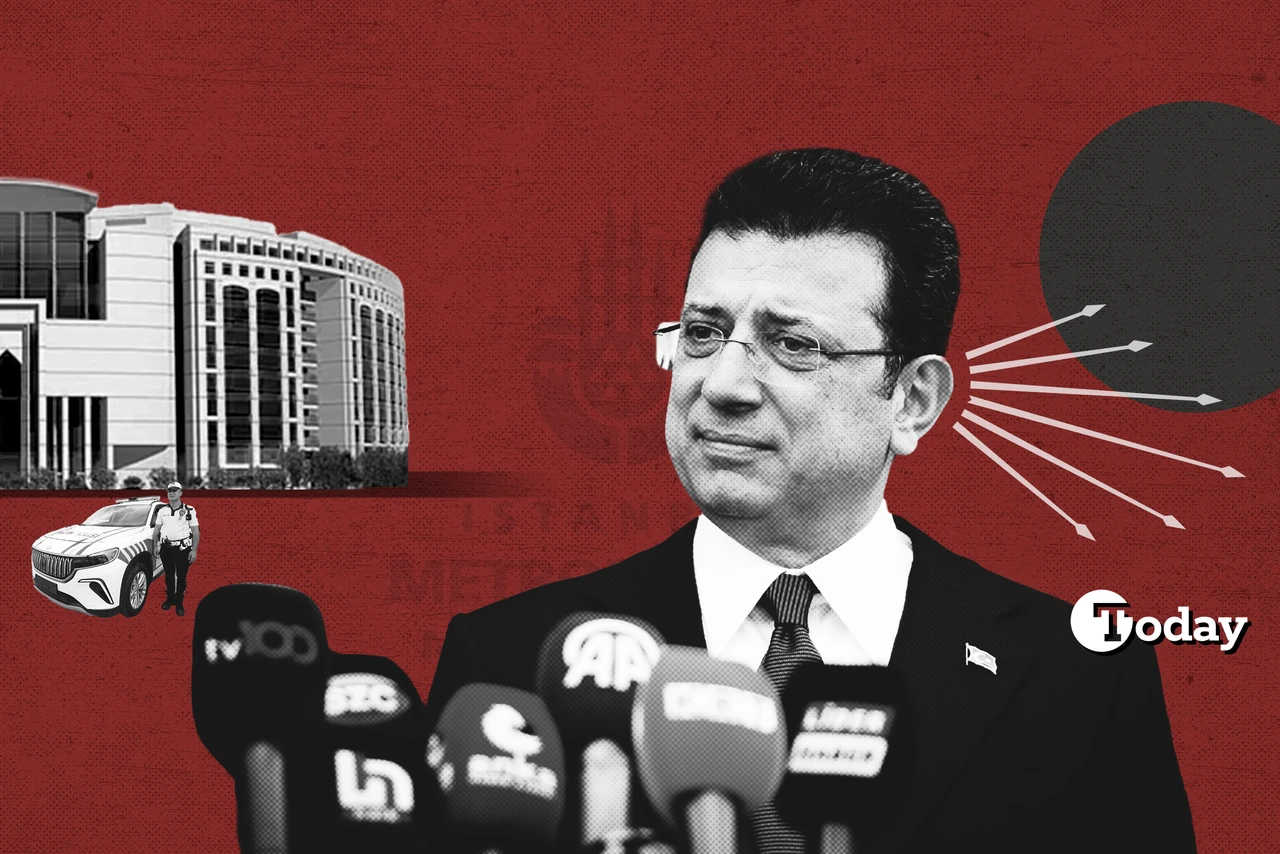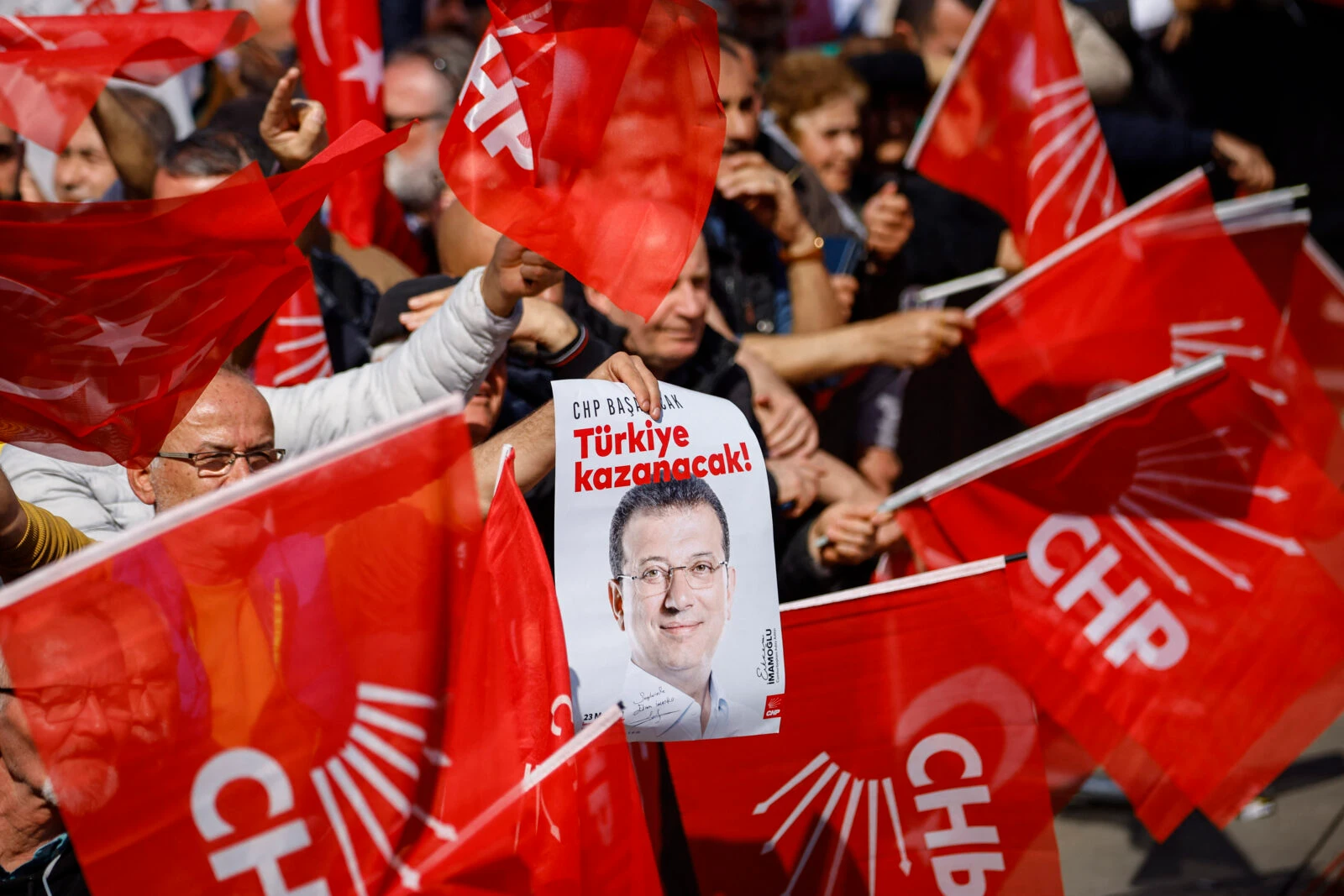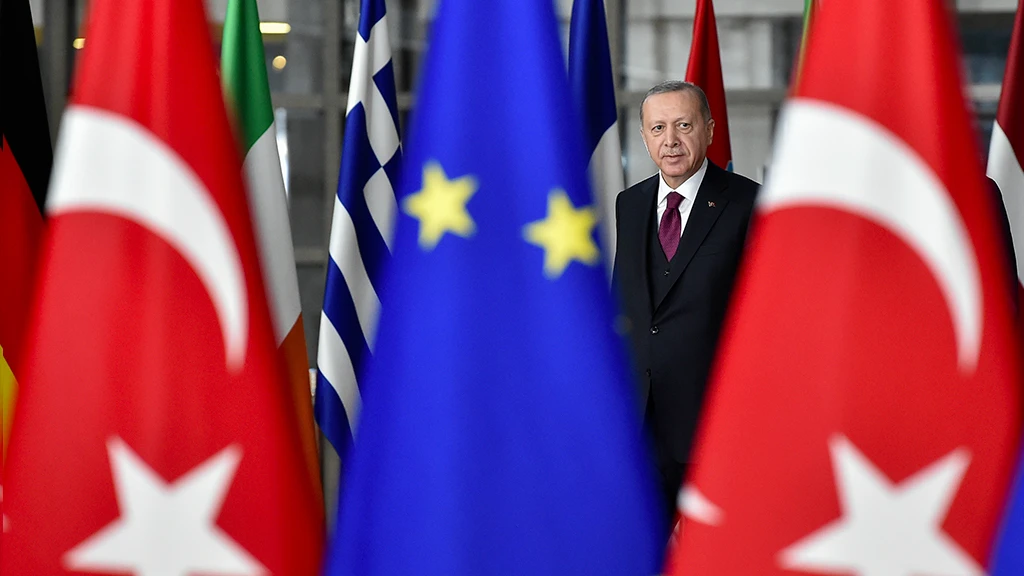International parliament PACE overreaches mandate over Imamoglu’s arrest
 Photo illustration depicts Istanbul Mayor Ekrem Imamoglu during a speech. (Collage prepared by Türkiye Today team)
Photo illustration depicts Istanbul Mayor Ekrem Imamoglu during a speech. (Collage prepared by Türkiye Today team)
The Council of Europe Parliamentary Assembly (PACE) has taken a controversial step in its latest statement on Türkiye. It called for the immediate release of former Istanbul Mayor Ekrem Imamoglu and demanded that the charges against him be dropped, along with the reversal of the decision to nullify Imamoglu’s diploma. These are not neutral recommendations; they go beyond observation and amount to interference with the country’s internal matters.
First, accepting Imamoglu’s arrest as a political case without a shadow of a doubt may be related to Europe’s certain convictions of Türkiye. Europe’s historical view of the country is shaped by deep-rooted beliefs such as “Türkiye can never be a country with judicial independence.” As a reader, you are free to comment on where such convictions stem from.
PACE, with the decleration, intends to declare someone innocent before a court has made a decision. Passing judgment before the facts are fully examined is not a defense of justice; it is politics presented as a legal concern.
The statement makes no mention of the corruption allegations. The accusations against Imamoglu include the questionable acquisition of three villas in one of Istanbul’s prime locations by his family’s construction company, in which he holds a 60% stake. According to official documents, a close business associate of Imamoglu purchased the villas on his behalf and transferred the property to Imamoglu’s company after three years at a low price.
Despite being a mayor for nearly two terms, Imamoglu’s large construction company did not stop its aggressive transactions, some of which were found to be doubtful by Türkiye’s justice departments. Let’s be honest: Regardless of the country, a presidential candidate faces a great deal of scrutunity by the rivals if he is running for a higher office. This might be what happened to Imamoglu.

Sole focus on Imamoglu’s arrest
PACE’s statement also focuses only on Imamoglu, even though the corruption investigation includes many individuals from different sectors. This narrow focus gives the impression that only one person matters. It turns a complex investigation into a one-sided story about political targeting, which may not reflect the full picture.
The timing of the statement also raises questions. Imamoglu is seen by many as a possible candidate for Türkiye’s 2028 presidential election. However, according to the Constitution of the Republic of Türkiye, all candidates must hold a valid university degree. Istanbul University recently canceled Imamoglu’s diploma, based on the conclusion that his transfer from an educational institution in Turkish Cyprus—which was not officially recognized as a university by Türkiye at the time—did not follow proper procedures. This decision has legal and political effects. By framing it as a political tactic against the opposition, PACE again moves away from legal observation and into political commentary. That is not the role of a responsible international institution.
Besides the other facts or information, it is noteworthy that Türkiye’s former Foreign Minister Mevlut Cavusoglu served as president of the Parliamentary Assembly of the Council of Europe from 2010 to 2012 and again from 2014 to 2015. This reflects Türkiye’s long-standing engagement and contributions to this institution, which is one of the international parliaments in Europe.
PACE briefly mentions Türkiye’s support for Ukraine and its constructive role in the region, but this recognition is limited when compared to the stronger criticism. A more balanced approach would support meaningful dialogue instead of widening mistrust.
Of course, Türkiye is not above criticism. It should be held to account when necessary, like any member state. But that criticism should be consistent, grounded in facts, and respectful of national institutions. Telling a country how to conduct an ongoing trial or how a university should handle internal matters crosses a line.
At a time when democracies face pressure across the world, institutions like PACE must act carefully. They need to defend their principles, but also understand the limits of their role. If they ignore those limits, they risk weakening both their own credibility and the very democratic values they claim to uphold.



